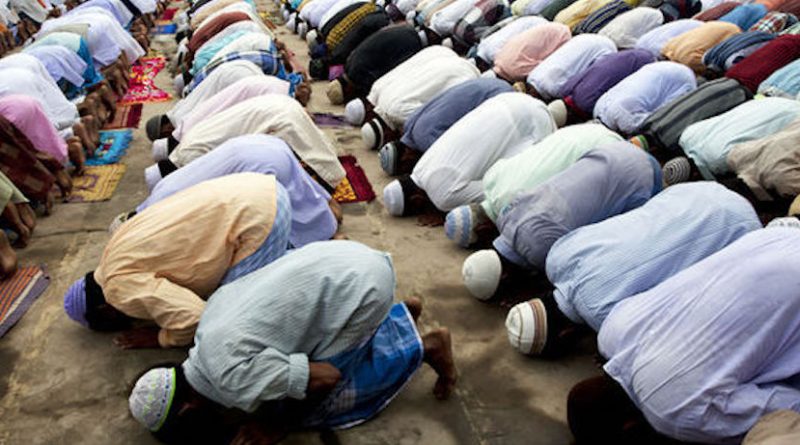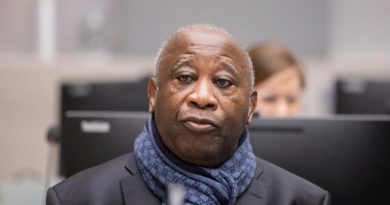Whose religion? Which peace? The Christianity-Islam acrimony
By Fr Innocent Mwanoka*
The silent growing animosity between Christians and Muslims makes one shudder and wonder if Malawi is not nurturing a time-bomb. The irony is that these two major religions are candid teachers and preachers of peace. Where is the peace that Christianity and Islam boast about when their followers fight? In the country, the battle only worsens when government seems to make little or no significant intervention, given that some of the sticky issues are matters of public interest.
God of Peace and His People
Christianity believes that its founder Jesus Christ is the Prince of Peace. When the Christ himself comes, he assures all people that he has come “to proclaim the year of the Lord’s favor.” (Lk4:19). After his resurrection, the very first gift that he offers to his followers is the gift of peace, “peace be with you” (Lk24:36). Following this, all Christians are sent to be instruments and promoters of peace.

Likewise, Islam is a religion that preaches peace as one of its strong and essential values. Quran 59:23 affirms that peace is one of the names of God himself: “He is God other than whom there is no god, the King, the Holy, the Peace…” Islam’s founder Muhammed ibn Abdallah is believed to be a prophet of peace. The phrase “peace be upon him” accompanies the prophet’s name not only to venerate him but also as a perpetual reminder to his followers that they too have to be heralds of peace.
Untrue Religions?
Going by the chain of sporadic crashes in the country since the turn of the 21st century, one would be forgiven to think that these religions are false, in the sense that they don’t preach peace in its true essence. Could that be true? Maybe not, because that would constitute an irreparable internal flaw that could not have spared these religions to this day. That compels us to question the followers’ understanding of peace as taught by their respective religions, importantly their adherence to it.
Without pointing fingers, both Christians and Muslims should ask themselves over and again in all honesty: What do we understand by peace and how do we live it? For truly, peace will not burn essential things as schools, torture and assault innocent people, barricade roads and draw operating boundaries. Peace will not incite or entertain violence.
Proclamation of “the Year of the Lord’s Favor”
Basically, the Christianity-Islam mostly silent animosity carries seeds of its own lasting solution: peace that springs from the one GOD alone as postulated by the two. This is peace that listens, understands, challenges, bears and builds. It acknowledges injuries and without judging or retaliating invites concerned parties into a healing dialogue. This is peace as Nelson Mandela affirms, that is not simply the absence of conflict, but a creation of an environment where all can flourish.
However, looking at the way the bad-blood is gently flowing even in the veins of kids, and given that most of the contentious issues are of public interest like schools and land, government needs to intervene assertively to set the nation on a new path. What we need is something more than police coming in to stop a brawl. Government needs to invite interested parties to genuine talking terms and then try and come up with legislatives and agreements that are binding. For instance, let there be a loud and clear-cut say on uniforms both in schools and in work places. Where there are laws already in place, let them be reviewed if necessary, highlighted and enforced.

In a wider sense, government through its Civic Education and National Reconciliation ministry has to embark on educating the citizenry about laws of their land. An ancient legal maxim says ignorance of the law is not an excuse. The assumption in this tenet is that one should strive by themselves to become law literate and therefore a responsible citizen. But looking at the levels of illiteracy that nurture this problem to some good extent, civic education remains a necessity. Let us not wait for people to face the law in courts; rather citizens need to know the law from their communities while all is well.
For the longer future, good structured education is key to real change. Let such subjects as philosophy, anthropology, sociology and so forth, become a key part of our education as a nation. These are discourses that challenge man to live a much estimable life that is proper to his nature as a rational being. On this note, we always remember that, faith without reason is fatal. According to John Paul II, “faith and reason are like two wings on which the human spirit rises to the contemplation of truth (…) so that, by knowing and loving God, men and women may also come to the fullness of truth about themselves” (Fides et Ratio).
In the same spirit, religious leaders should take it upon themselves to enlighten their flocks on the interrelatedness of religious creeds and law of the land, while exalting them to be peace-makers. This is very crucial in a society like Malawi where there are many religions with different beliefs.
Believers have to appreciate that at times, where religious law and law of the land seem to be in conflict, law of the land takes precedence. That also serves as a reminder to legislators to always strive to enact laws that uphold and promote the dignity of their people as sons and daughters of God.
Conclusion
It all goes back to every Malawian to be an instrument and promoter of peace. Religion (Latin: re-ligare, to bind) in its proper sense must help people to unite and co-exist peacefully. Differences shall always be there, and that is characteristic of any progressive society.

But let us not allow our differences to divide us whatsoever. Instead, they should make us proud that each of our religion is uniquely what it is; and together we are Malawi, a peace-loving people, a God-fearing nation!
*Fr Mwanoka is a freelance contributor to The Lamp magazine



